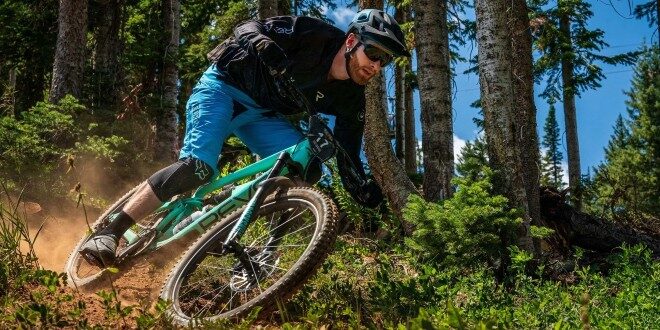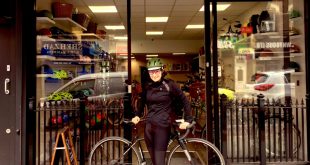Rebecca Morley catches up with Cyclorise director Thomas Dibley on the launch of the distributor’s B2B website for IBDs

While 2020 saw a boom in demand and sales across much of the cycling industry, it also created difficulties for some companies and distributors to keep in touch with dealers due to COVID-19 lockdowns and restrictions. In response to this, Cyclorise has launched a B2B website for IBDs, aiming to remove barriers to purchase and keep the order process as simple as possible.
The distributor was founded in 2017, meaning it had been running for almost four years with orders having to be placed by email or over the phone, says director Thomas Dibley. “We brought on our first sales rep in January – he’s full time and we needed something to better log and track customers so there’s better internal communication. But as a by-product of that, we needed customers to have as few barriers to entry as possible.
“Thinking to place an order by finding out what they wanted, sending an email and waiting for a response are quite a lot of barriers for entry. From a B2C point of view, we’re quite familiar with how a website should be performing to ensure a customer follows through and checks out. That really needed to be applied to the B2B angle as well.
“We tried B2Bs various times along the way, but unless you’re investing a lot of money, the actual output of the product that you end up with is always highly compromised. We finally found a way to build one that was quick to use, reliable, simple, that shops seem to be finding really easy to navigate.”
So what impact has it had since it launched? “I’d never really thought launching a B2B would be that exciting, but it’s actually meant an awful lot,” says Dibley. “It’s one of those things that we wish we did a lot earlier. We put it off on a number of occasions but actually having done it, we’ve had a huge amount of reinvigoration of dead accounts, which has been really encouraging. 84% of existing customers have registered for their trade account.”
Almost every account is not only activated but has communicated with Cyclorise since then, Dibley adds. And instead of customers just reordering what they previously ordered, they are now ordering across more than one brand. “Typically speaking, somebody would be ordering replacement bells so they’d email me and ask for 15,” Dibley explains. “But they hadn’t taken the time to browse our website – they just know that what they’ve been buying is working for them so they’re ordering more.
“It’s just thinking about it like you would a B2C customer. If they’re coming to your website, you want to present them with as much as possible in order to check out and without that website, that wasn’t possible. We’re finding shops are, on average, adding three brands to check out instead of just the one. In turn, that is increasing basket value. Additionally, we’ve had a 14% increase in our dealer network size since launching, which suggests that there is an appetite for new suppliers and new product.”
Working together
IBDs will always be hugely important to the cycling industry, offering expert advice and support for customers. This is an advantage bricks and mortar retailers will always have over the internet, even with the rise in online purchasing we’ve seen over recent years.
“I’ve worked for online retailers and I think they’re great for certain brands,” says Dibley, “certainly for commodities and once you’ve got national penetration and your customers are stretching through every town and every country. But we’re still young, we’re still building the desirability of our brands. Who’s the better salesman – is it going to be an online retailer or is it going to be an IBD who has the time to put into selling your product to their customer base?

“We’re recruiting shops and those shops are recruiting customers. We’re all working together and helping each other. We definitely can’t undervalue the IBD and I think that goes to show when you look at our range and see where it’s available. Who we support is evident.”
And much of the UK cycling industry has seen a rise in sales since the beginning of COVID-19 restrictions just over a year ago, despite the initial panic some felt for their businesses when the first lockdown was implemented.
“A year ago when it all kicked off, we were just like everybody – sitting in awe with our jaws on the floor, wondering how are we going to pay the bills,” Dibley says. “Sales fell away for a very short time, it was a week or two of panic stations. But customers returned. Trade custom took a break for a little longer than the consumer, but it came back with force and the increase in sales enabled us to bring on more and more brands throughout the year.
“That’s increased revenue. A year ago we had six brands – mostly accessory brands with one component brand. But we’ve got 13 brands now with more in the pipeline. We’re actively looking for the next commodity type, larger revenue brand. Bringing on Revel Bikes towards the end of last year was a huge success for us, and Onza Tires as well.
“We’ve now got a bike brand to take on very well established bike brands – give us a couple of years and we’ll be punching with the heavyweights. It’s meant tremendous growth but at the same time growing pains because, of course, supply challenges us all. It’s also shipping delays and the costs of importing are very challenging and very, very expensive.
“But where the majority of our product comes in from the USA and South Africa, we haven’t actually noticed many shipping delays; it’s only a few European shipments that have been delayed, and that’s Brexit.”
The challenge as a distributor, Dibley continues, and having brands that are lesser-heard of, means there is quite a sales job ahead and Cyclorise needs time with dealers to help present those brands. “Not being able to walk into shops for the last year has been quite a challenge. We’ve seen that growth but, if we could have been on the road more, maybe we would have seen even more so.”
Cyclorise brought on a salesman in January, who started on 1st March and has already been out on the road. And the distributor has seen instant results, Dibley says. “Shops seem very keen to see him. They’re well practised now with how to handle customers in their shops and they’re selling a lot and so it should be business as normal, as far as it can be. There’s still the odd shop that is quite sensitive towards sales reps walking in. We don’t turn up unannounced, it’s always pre-bookings. We know when the best time to arrive is, so people can give some time and distance for each other.”
Future plans
The growth Cyclorise has experienced has brought quite a lot of demand in terms of warehousing, and now the distributor has a bike brand there is a need for a larger warehouse with a workshop, the potential for a warranty team and a greater staff holding.
“By the end of the year, we will have a larger facility and we’ll have a couple of extra staff in the minimum,” says Dibley. “A lot of the growth will come from what stock we can realise, and we’ve got a good idea of what is reasonable to expect what our growth could be. But will it be the same as it would be if we could get unlimited stock? That’s what we’re trying to work on.
“People still want to ride bikes more than ever. There’s still a huge shortfall in components to build bikes. We’re getting a lot of consumer interest in Revel Bikes particularly. We’re sending a lot of that traffic to our dealers. We’ve got dealers ordering bikes right up to the end of the summer. We know what supply is definitely coming but we’re just anticipating demand by the end of this year to be higher than it is now and continue that upwards growth path. 2022 should be huge for us.”
 BikeBiz Bicycle and cycling retail news
BikeBiz Bicycle and cycling retail news




